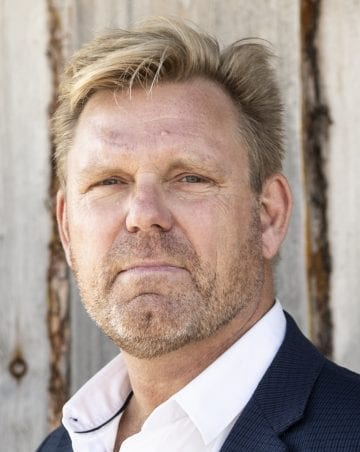The Ålandic potential – Cross sectoral co creation as the key to success

Jacob Mangwana Haagendal,
Director,
Nordic Institute in Åland
Åland is a small community but nevertheless full of ambitions to make a difference for the better. A shining example is the work on the vision for sustainability, which is described in www.barkraft.ax sustainability agenda.
With this agenda as winner of the European Sustainability Award in 2019, the outside world to some extent became aware of the work being done in Åland to handle future challenges and succeed with SDG objectives. Traditionally, there is a lot of talk about the environment, climate, regulations, responsibility and consumption when we focus on how we can be 100% sustainable in the future. The sustainability agenda focuses on selected SDGs where Goal 12 is a key focal point.
The model for Sustainability in cross sectoral co-creation I originally developed as an analysis tool in my cultural diplomacy work in new EU countries. It describes 4 pillars, each with its sector and each with its value set. The thesis is, that sustainable development is not possible, unless all sectors are represented, and that every sector manages to transcend one’s own paradigm and one’s own definition of added value. The 4 sectors are: Business, education, culture and governance. Each sector has its own set of values and defines its existence and success based on these sectoral set of values. I.e. Business – money / profit, education – knowledge / insight, culture – content / meaningfulness and governance – decision making / management.
With the sustainability agenda, Åland has taken a major, ambitious step forward ahead of most other Nordic countries. The effects of working with the ålandic sustainability agenda will undoubtedly be of great importance for Åland and act as a source of inspiration, problem solver and as a developer of lasting sustainable solutions.
Of the 4 sectors described, the education sector and the cultural sector in Åland have been quite focused on working on the sustainability agenda. This has been relatively simple primarily as these sectors do not necessarily enter into a classic growth mindset. It seems that the sectors have been successful in raising awareness in the civil society and are well on the way, creating microscopic but lasting changes in the mindset towards sustainability awareness at the individual level.
The Government in Åland, “Landskapsregeringen”, employed in 2015 a development and sustainability strategist, probably one of the most important decisions made in modern sustainability work on Åland. Over the past three years the progress has been not as expected, but looking at the causes through our co-creation model, the great challenge is, that the whole thinking about our modern welfare system is driven by a growth mindset. The model points out that the future welfare society should be shaped by anchoring, investing and sharing.
It goes without saying that it is a challenge for the political sector to make the sometimes difficult and complicated decisions that come with working towards a 100% sustainable society. In Åland, one could easily call for a little more courage to take part in several of the difficult decisions, which are not always popular but which, in turn, are very necessary, in order to be able to achieve the sustainability agenda.
This demand also applies to the business sector in Åland. The small and medium-sized businesses in this sector are already well represented in the work on the sustainability agenda and the recognition in the business sector, that it relies on common solutions, is also a very positive indicator of the ability to achieve goals. Unfortunately, it takes longer for the large international Åland companies to engage in the sustainability work, and join the dialogue about how Åland, as a self-government area, can succeed with the ambitions of being 100% sustainable by 2051.
It seems there is a long way to go. But the road may be shorter than one imagines, and the potential for both achieving goals and showing a viable path in the sustainability work, is strongly present in Åland. This is because the vision does not attack a particular sector, or point out where it is wrong, but instead tries to accommodate all sectors, while also addressing how each sector and individual person thinks.
The vision affects each sector’s own values and success criteria. The sectors are invited through the vision to take an interest in a shared set of values and this process is just easier in a small island community like the Åland Islands.
Cooperation towards a sustainable Åland is best visible in the Bärkraft network, which represent a unified Åland. This network is in itself an embodiment of the potential and an indication of the importance that Åland can play in Baltic, Nordic and international sustainability work. With the Nordic Council of Ministers vision of a sustainable and integrated Nordic, the ålandic potential will be significantly strengthened in the coming years.
Expert article 2568
